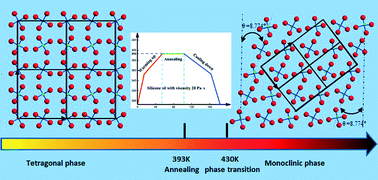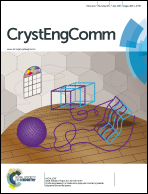New annealing method to improve KD2PO4 crystal quality: learning from high temperature phase transition
Abstract
The existence of a high temperature phase transition in KD2PO4 was confirmed by thermal analysis, dielectric analysis and Raman spectroscopy. The results showed that KD2PO4 presented only one high temperature phase transition at about Ttr = 430 K, which is much lower than the thermal decomposition temperature. The absence of Raman shift attributable to the dehydration product indicated that the HTPT had nothing to do with thermal decomposition. The structural change during the HTPT was discussed. The strong similarity between the HT-phase and tetragonal phase decreases the temperature of the HTPT in the KD2PO4 crystal. The hydrogen–deuterium exchange can be suppressed under a protective ambient environment, which helps improve the annealing temperature. A new annealing method was developed by using silicone oil as a protective ambient environment under higher temperature up to 403 K, thus improving the quality of KD2PO4 crystals.


 Please wait while we load your content...
Please wait while we load your content...